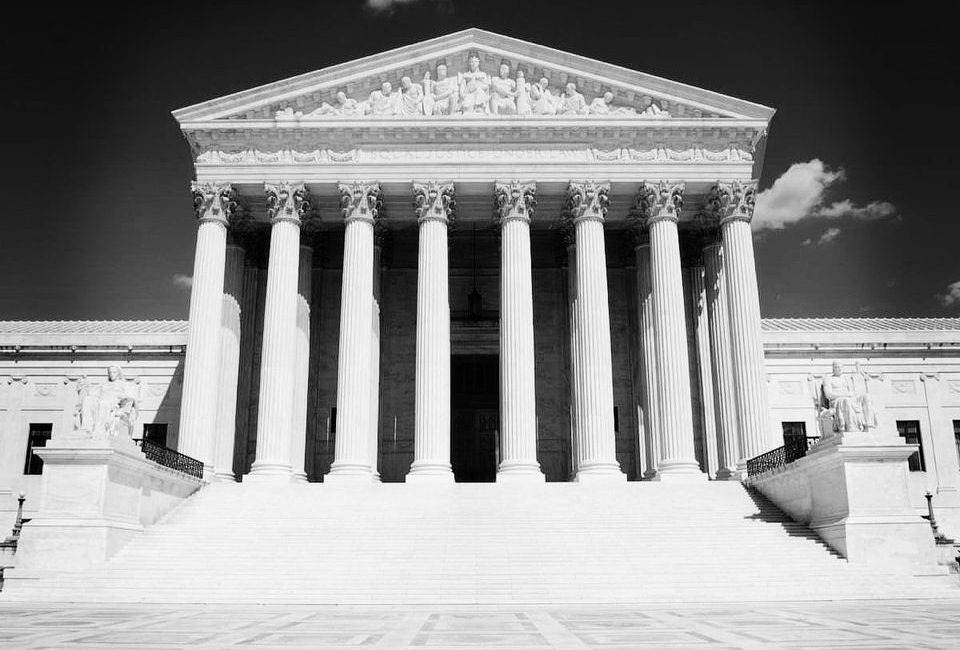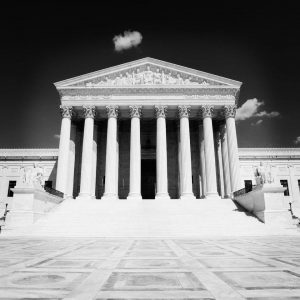From Blake Morgan on Facebook, 10/06/20: The U.S. Supreme Court case I’m involved with will be heard by the Court tomorrow (10/07/20) (sadly, without RBG), and is shaping up to be one of the most important copyright cases of the decade. It could set fair-use standards for “content,” for years to come and our amicus brief –– I’m standing alongside Helienne Lindvall, David Lowery, and the Songwriters Guild of America –– is about standing up against the anti-copyright corporate overreach of Google.
Remember: without copyright, artists have no rights.
“This case (Google v. Oracle) again appears to be the latest in Google’s long-term strategy to use its market dominance and overwhelming commercial power to continually distort copyright exceptions, thereby artificially depressing the market price of copyrighted works.”
Read more about the case, here: https://bit.ly/scotusGvO
#IrespectMusic
# # # # #
Supreme Court Puzzles Over the Nature of Software in Landmark Google v. Oracle Case
By Brian Fung, CNN Business | Historic, multibillion-dollar lawsuit between Oracle and Google may come down to the jumbled attempts on Wednesday by eight Supreme Court justices to find an appropriate analogy to describe common computer code.
From grocery stores to restaurant menus to QWERTY keyboards, the nation’s most esteemed jurists applied metaphor after metaphor to try to understand whether Google’s decision a decade ago to re-use software initially created by Oracle-owned Sun Microsystems violated copyright law.
The rapid-fire string of analogies, along with the wide range of justices’ questions, left the case’s fate in doubt. The outcome could determine the future of software development in the United States — and, by extension, the future of a world that’s increasingly dominated by digital services and technology.
The law treats computer programs as generally copyrightable. But the type of code at issue in this case is not, Google argued, because it involves little creative expression and is simply invoked by developers as a kind of shorthand in their code to refer to much longer snippets of other instructions.
These helper programs, known as software interfaces, application programming interfaces or APIs, are a ubiquitous feature of today’s networked digital economy, where different apps need to be able to work together and share information. Oracle asserts that this type of code, at least as created by Sun Microsystems, is nevertheless an expressive work that is eligible for copyright protections.
For an hour and a half, the justices asked why Google had to rely on code written by others in order to design its Android operating system, and why it believed the copying was permitted. Perhaps Google’s copying is no different than a restaurant owner copying the basic structure of another restaurant’s menu, Chief Justice John Roberts suggested, in that most menus list appetizers before entrees, and entrees before dessert.
Only Justice Stephen Breyer appeared to express a strong preference for Google’s position, arguing forcefully that for Oracle to be allowed to copyright software interfaces would be like allowing the inventor of the QWERTY keyboard to gain intellectual property rights over all computers.
“Very bad consequences will flow if you don’t see that distinction,” he said.
“Everyone was at sea and just waiting for one good analogy to latch onto, which apparently was QWERTY,” tweeted Charles Duan, a senior fellow at the R Street Institute, which had filed a brief in support of Google.
Roberts suggested that for Oracle’s code to become so important that others would seek to copy it implies that the company should be rewarded, not hurt through copyright infringement.
Read the whole, very important to songwriters, article here:
https://www.cnn.com/2020/10/07/tech/google-oracle-arguments/index.html


